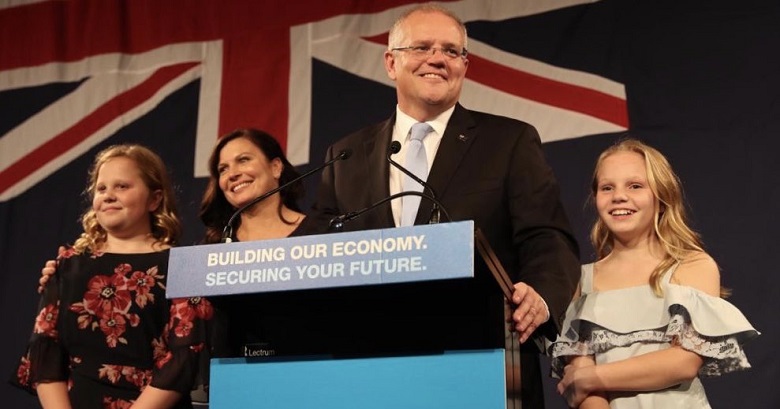
The Morrison government has won another term in office after Australians voted to return the Coalition to power.
As of Tuesday the Australian Electoral Commission had the Coalition with 78 seats to Labor’s 67, with the remaining six shared among independents and smaller parties.
After announcing he was standing down following his unexpected defeat on Saturday, Bill Shorten on Sunday announced he had asked the National Secretary to convene a meeting of the National Executive to begin the process of electing a new Labor leader.
On Sunday Anthony Albanese announced his intention to run as a candidate for leader, saying he believed he was the best person to lead the party back into government, and on Tuesday Chris Bowen announced he was throwing his hat in the ring. Jim Chalmers has also confirmed he is considering joining the fray.
Deputy Labor leader Tanya Plibersek ruled herself out of the running on Monday saying now was not her time.
“At this point, I cannot reconcile the important responsibilities I have to my family with the additional responsibilities of the Labor leadership,” she said in a statement.
Meanwhile, former PM Tony Abbott was ejected from his seat in Warringah by independent Zali Steggall, who promised to be a “climate leader” in her speech.
The other high-profile independent candidate of the election, Kerryn Phelps, on Monday morning conceded defeat to Dave Sharma in Wentworth.
Comment below to have your say on this story.
If you have a news story or tip-off, get in touch at editorial@governmentnews.com.au.
Sign up to the Government News newsletter.
WE LIVE IN A FISHBOWL
This last election demonstrated the type of society we have chosen to become. No longer can we have an informed discussion on policy agenda that affects the community at large. Instead we ask – “what’s in it for me.” As a result, we discard any policy that may adversely impact on one self, but assist some disadvantaged section of our society, and revert back to our walled state of self- interest – the fishbowl
Australian’s used to be proud that we had an egalitarian society, when at the time European societies were clearly defined between the wealthy elite class and the working class. However, with the passage of time we have seen the erosion of some key pillars of our society, particularly in education, universities, welfare, Medicare and tax structures, all of which were originally designed to provide equality to every citizen in achieving their dreams. As a result, we have developed an unequal society with the gap in economic well- being widening and with no attempt by Governments to bridge this gap. In fact, the tax policy of the current Government will ensure that this gap remains.
The Labor Party vision for Australia was bold and recognized the sores in our society structure that needed healing. However, the plan made the assumption that society was more generous and less mean spirited, and required the reduction or cancelling of a few of the generous handouts to a small segment in our society in the higher economic scale, namely negative gearing and franking credits. The proceeds were to go to the more needy segments of our society and to our younger generation to enable them to get a head start in life.
A thorough review of each of the reform agenda items in the public forum would have enabled society to break out of the current fish bowl. Instead, the entire agenda was thrown under the bus and trampled under the heading of massive tax increases by the current Government. The arguments became toxic, distorted and at times vile rhetoric to the point that it was difficult for some of the less political minds in our society to understand exactly what was being proposed. In the end it became difficult for the Labor Party to be constantly on the defensive against the attacks as opposed to giving a fuller explanation of the proposed changes. The writer agrees that some of the agenda items in the reform agenda were going too far. However, a fuller discussion of these items could have achieved them being cancelled. In the time available and under our system these items would have been cancelled in the Parliamentary process.
The election is now over and the grey suits have returned to Canberra with no reform agenda but more of the same to solidify the economic divide in society, a blank sheet of paper. When Parliament resumes, the grey suits will be looking at each other and saying – “now what do we do?” and we all return to our Fishbowls.
Graham Stubington AM